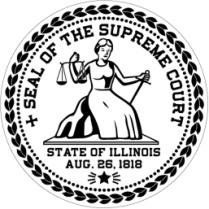Quick Take on Illinois Supreme Court Opinion Issued Friday, February 22

The Illinois Supreme Court handed down one opinion on Friday, February 22. In Edwards v. Atterberry, the court denied a petitioner’s motion for a supervisory order but allowed him leave to file a complaint for writ of prohibition.
By Jay Wiegman, Office of the State Appellate Defender
It is not very often that a group of appellate attorneys has difficulty determining whether an Illinois Supreme Court case is criminal or civil in nature. Edwards v. Atterberry, 2019 IL 123370, however, is such a case. After a jury found Edwards guilty of violating the Timber Buyers Licensing Act, a section of the Professions, Occupations and Business Operations Act (225 ILCS 735/1, et seq. (2016)), he filed a motion for supervisory order and for leave to file a writ of prohibition seeking to prohibit Judge Atterberry from conducting a sentencing hearing or from taking any other action in the underlying criminal case. Edwards claimed that because he was charged with violating regulations rather than a statute defining a criminal offense, the circuit court lacked subject-matter jurisdiction. The supreme court denied the motion for a supervisory order but allowed Edwards leave to file a complaint for writ of prohibition.
Four requirements must be met before a writ of prohibition will issue: 1) the action to be prohibited must be of a judicial or quasi‑judicial nature; 2) the writ must be directed against a tribunal of inferior jurisdiction; 3) the action to be prohibited must be outside the tribunal’s jurisdiction or, if within its jurisdiction, beyond its legitimate authority; and 4) there must not be any other adequate remedy available to the petitioner. Justice Garman, writing for the majority, narrowed the court’s focus to the fourth requirement: whether there was any other adequate remedy available to the petitioner, and quickly determined that there was: the normal appellate process. The majority also rejected Edwards’ claims—that he faced irremediable harm if he were to utilize the ordinary appellate practice and ultimately prevail, because his business would falter and his livelihood would be jeopardized were he to be jailed or have his license revoked. The court determined that if Edwards was sentenced, the circuit court’s rulings would still be subject to review. As for Edwards’ concerns about his license, the majority noted that if collateral consequences like this were considered to be indicative of irremediable harm, “then the normal appellate process would nearly always prove inadequate.” Edwards v. Atterberry, 2019 IL 123370, ¶ 18. Because the majority of the sharply divided court determined that Edwards’ complaint did not present an issue important to the administration of justice, it declined to address the merits of the complaint.
Justice Kilbride wrote a dissent, in which Justices Burke and Neville joined. Stating that Edwards’ conviction was for a “purported crime,” the dissent stated that Edwards had been “convicted of an alleged regulatory offense that does not exist.” Edwards v. Atterberry, 2019 IL 123370, ¶ 29 (Kilbride, J., dissenting). The dissent questioned how “an administrative rule can be used to support a criminal conviction of an alleged regulatory offense that the rule itself never identifies or details.” Edwards v. Atterberry, 2019 IL 123370, ¶ 35 (Kilbride, J., dissenting). Reviewing the intricacies of both the Administrative Code and the Timber Buyers Licensing Act, the dissent concluded that Edwards did not belong to a category of offender that the administrative rule was intended to govern. The dissent agreed with the majority that prohibition relief is an extraordinary remedy that should be used with restraint and only under exceptional circumstances, and stated that such relief was appropriate here because the state had obtained a “criminal conviction for a regulatory offense that does not exist based on charged conduct that is not criminalized by the regulation cited in the information.” Edwards v. Atterberry, 2019 IL 123370, ¶ 42 (Kilbride, J., dissenting).

